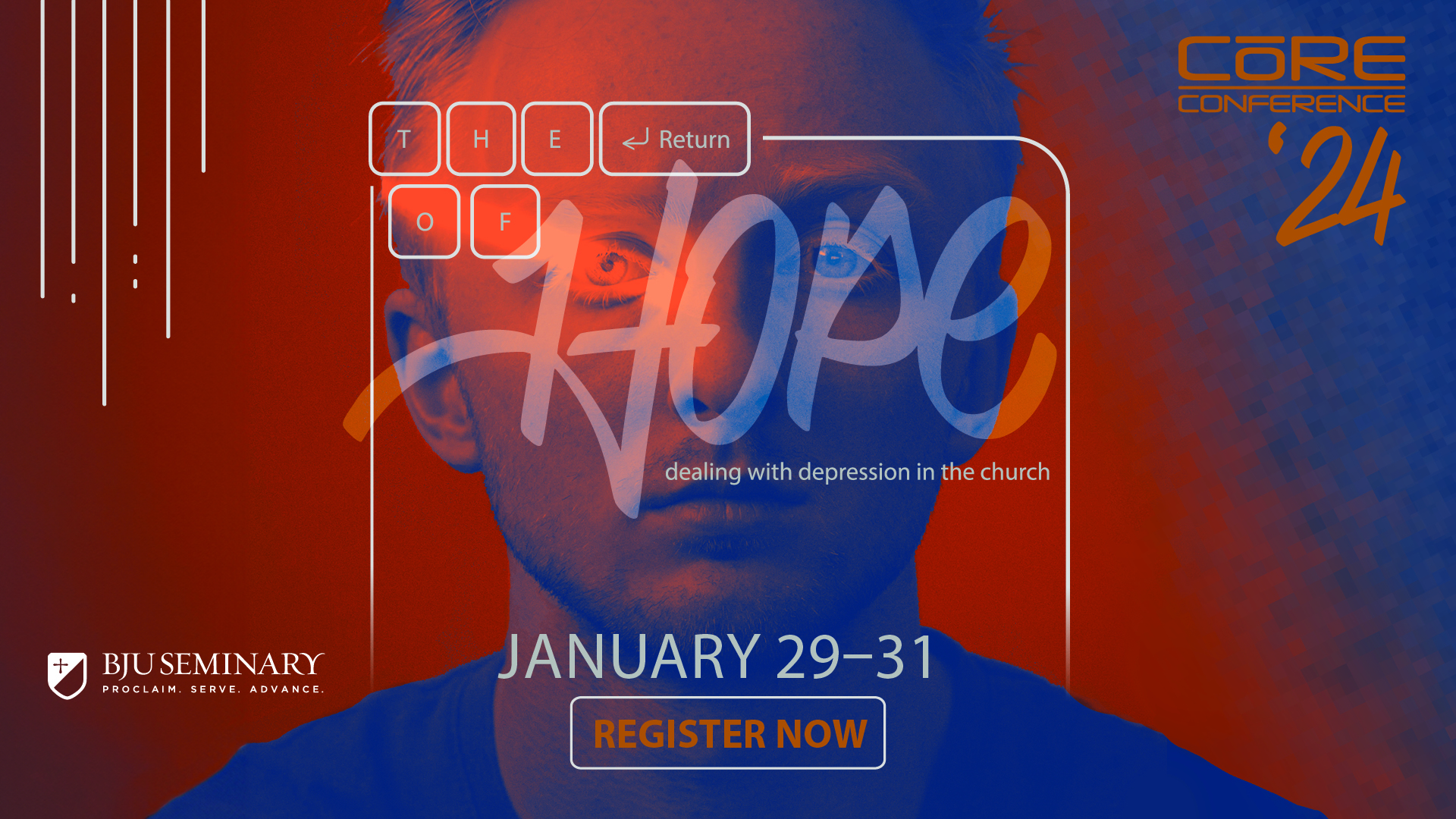Today’s post is sponsored by BJU Seminary and written by Brian Hand, professor of New Testament interpretation. BJU Seminary equips Christian leaders through an educational and ministry experience that is biblically shaped, theologically rich, historically significant, and evangelistically robust.
Melancholia—on a spectrum from simple sadness to profound discouragement, then crossing a moral line into despair—marks nearly every life at some point. Sorrow even appears throughout Scripture, and the biblical evidence seems to run the gamut of mild sorrow (the rich young rule in Matthew 22, whose sorrow was induced by personal sin) through severe despondency (Job and David among others, whose sorrow was induced by circumstance, sickness, or Satan) to depression with despair (Judas), and it does so without ever using modern, scientific designations.
A biblical-theological examination of melancholy should help us nuance our understanding of human sadness, and it shows us that melancholy is an emotional reflection of a fallen world. Upon such examination, which is detailed in my article in BJU Seminary’s Journal of Biblical Theology & Worldview, I find three avenues of application useful for sufferers and counselors alike.
First, the Church should strive to exercise great tenderness in handling cases of melancholy, understanding that distress is not always connected with specific personal sins.
Second, Scripture addresses the full range of melancholic emotions by depicting them as part of normal human experience under the curse. They reveal what we value, love, and believe, how badly we hurt, how dark this world really is, and, therefore, how desperate and vital our faith really is.
Third, while melancholy often “tells the truth” about the Fall, it does not tell “the whole truth, and nothing but the truth.” It is a genuine mirror of reality, but it is also a defective mirror because it shows only part of the picture. It does no good to contradict the melancholic, “It’s not that bad,” while he correctly and accurately replies in his heart, “Oh, yes, it is!” It also does no good to transfix oneself in the misery of one truth while neglecting the hope of other truths. The mirror of our emotions may be both correct and incorrect in different ways simultaneously.
Affirming with the sufferer that life is as dark as he feels it to be, this world is as corrupt as he feels it to be, and the body, mind, and emotions are indeed crumbling can exhibit much needed sympathy. This is not the only truth or all the truth, but it is the truth. It can be constructive, then, to recognize the full depth and righteousness of sadness while guiding the severely discouraged person to reaffirm “the whole truth.” Recognizing that melancholy mirrors the Fall gives the biblical counselor the opportunity to affirm the decay that has touched everything in this world while insisting that the sufferer also see and confess the restoration that Christ has begun and will continue to eternity. We must not minimize the former in the rush to the latter, or we will seem disingenuous to the sufferer.
As counselors, we can help the sufferer remember that the people of God rest on him and voice a reliance on him even when they cannot see or feel him. Often, pain remains. There is no guarantee that God will deliver us from sadness of heart this side of the Fall any more than he guarantees deliverance from disease and death. But though the pain remains, it can become like the pain of childbirth—giving rise to something of value, purposeful, God-designed—for that is his plan in all our suffering (Jas 1:12).
For the people of God, the Fall will come to an end, swept away in a majestic display of divine power, wisdom, and compassion involving the redemption and glorification of our bodies, the creation of the new heavens and new earth, and the end of sorrow forever. Melancholy, the eminent emotional mirror of the Fall, will be forever shattered. We will never again know loss, for God will be with us.
To learn more about helping believers with melancholy, consider joining BJU Seminary January 29–31 for its CoRE Conference on “The Return of Hope: Dealing with Depression in the Church.” Save with the early bird discount until December 15!










